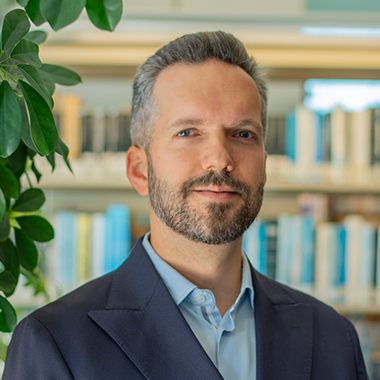
Gyorgy Szekely
Associate Professor, Chemical Engineering
Physical Science and Engineering Division
“My group develops sustainable separations through a combination of materials science, datascience and process engineering.”
Program Affiliations
Biography
Professor Gyorgy Szekely's research at KAUST focuses on sustainable separation technologies through the synergistic combination of materials science, data science and chemical engineering. Prior to joining KAUST in 2019, he held appointments in chemical engineering as an assistant professor at the University of Manchester, UK. He has produced more than 160 publications, 10 patents, 4 books and 12 book chapters. Szekely is active in numerous professional organizations. He currently serves as executive editorial board member for Sustainability Science and Technology; and as associate editor for the Separation Processes section of Frontiers in Chemical Engineering as well as for Advanced Membranes, Journal of Membrane Science and Sustainability & Circularity NOW. He is a fellow of the Royal Society of Chemistry (FRSC) and Higher Education Academy (FHEA) in the UK, and an elected council member of the European Membrane Society.
Research Interests
Professor Szekely has devoted his career to the research of sustainable solutions for separation challenges, in particular separation materials and processes involving membranes. The sustainable production of chemicals, pharmaceuticals and clean water is largely impacted by the efficiency of separation processes in product supply chains. Conventional separation processes can account for as much as 80% of the total manufacturing costs, contributing approximately 10% of the world's energy consumption. In particular, his group develops sustainable separations through a combination of materials science, data science and process engineering.
Education Profile
Research Associate, Imperial College London, UK, 2012-2014
Ph.D. Chemistry, Technical University of Dortmund, Germany, 2009-2012
M.Eng. Chemical Engineering, Technical University of Budapest, Hungary, 2004-2009
Awards and Recognitions
Publications
Research Areas
- Material Science and Engineering
- Chemical and Biological Engineering
- Chemical Science

